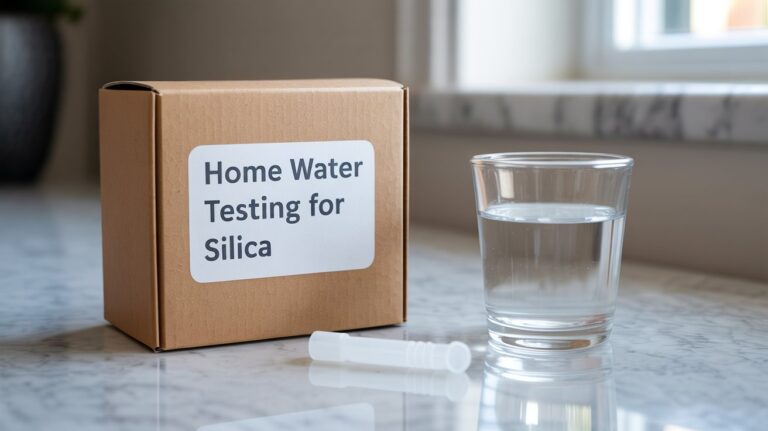Well Water vs. Spring Water – Which is Better?
Overview
Uncover the origins, sourcing methods, mineral contents, potential contaminants, and purification techniques of both well water and spring water.
Benefits and Considerations
Discover the health benefits, associated risks, environmental impacts, and regulatory standards affecting these water sources.
Decision-Making
Gain insights to make informed choices that align with your health and environmental priorities when selecting between well water and spring water.
Introduction
Water is a crucial part of our daily lives, from staying hydrated to its use in cooking and cleaning. But not all water sources are created equal. You might have heard about well water and spring water, but how much do you really know about them? Choosing the right water source is not just about quenching your thirst; it’s about ensuring your safety and contributing to environmental sustainability.
Definitions and Sources
Before we start comparing, it’s important to understand what well water and spring water are and where they come from.
Well Water
Well water is groundwater that is accessed by drilling a hole into the ground. This type of water is collected from aquifers – underground layers of rock that hold water.
- Definition and Origin: Well water is primarily sourced from aquifers, which are natural underground reservoirs. The water is accessed by drilling wells into these aquifers.
- Sourcing: Typically, a pump is installed to bring the water to the surface. The depth and location of the well can greatly affect the quality of the water.
Spring Water
Spring water, on the other hand, naturally flows to the surface from underground. This water emerges from springs, which are natural sources where groundwater flows out of the ground.
- Definition and Origin: Spring water is also groundwater but it comes to the surface naturally through springs.
- Sourcing: This water is often collected at the spring or at a point downstream, where the water’s purity and mineral content can be preserved.

Comparison of Water Quality
Understanding the quality of well water and spring water helps you know what you are putting into your body. Quality can be influenced by mineral content, contaminants, and purification methods.
Mineral Content
Mineral content is often a significant concern when you are considering water sources for drinking.
| Mineral | Well Water | Spring Water |
|---|---|---|
| Calcium | High | Moderate |
| Magnesium | Moderate | Moderate |
| Sulfates | Variable | Low |
- Mineral Content: Well water can have a higher mineral content due to its journey through mineral-rich soils and rock layers. Spring water may also have minerals, but they usually come from a less mineral-intensive path.
- Impact on Taste and Health: More minerals can mean a distinct taste, which some people find either pleasing or off-putting. These minerals can also contribute to your daily nutrient intake.
Water Contamination
While both types of water can offer a natural source of hydration, they are not immune to contamination.
- Potential Contaminants in Well Water: Well water can be susceptible to various contaminants such as pesticides, heavy metals, and bacteria if the well is not properly sealed or if it is close to agricultural or industrial areas.
- Potential Contaminants in Spring Water: Spring water can have natural impurities like organic matter, microbes, or bacteria, especially if the spring is not well-protected.
Water Purification and Treatment
Purifying your water is crucial for ensuring its safety, especially when dealing with natural sources.
- Common Purification Methods for Well Water: Reverse osmosis, UV purification, and water softening are common techniques used.
- Common Purification Methods for Spring Water: Often, spring water undergoes filtration and sometimes UV treatment to ensure it meets health standards before it hits the shelves or your bottle.
Health Benefits
Drinking clean water is vital to maintaining good health. Both well water and spring water have their sets of benefits and risks.
Nutritional Value
Both types of water offer nutritional benefits thanks to their mineral content.
- Beneficial Minerals: Calcium, magnesium, and potassium found in both well and spring water can support bone health, muscle function, and overall bodily function.
Health Risks
Despite their benefits, consuming contaminated water poses risks.
- Possible Health Risks: Contaminants can lead to various health issues, from gastrointestinal problems to long-term diseases.
- Preventive Measures and Regular Water Testing: Regular testing of your water, regardless of its source, is essential. Testing can help you identify contaminants early, allowing for prompt treatment.

Environmental Impact
Water sourcing also affects the environment. It’s essential to consider sustainability when choosing between well water and spring water.
Sustainability of Well Water
Long-term use of well water has notable effects on the environment.
- Effects on Groundwater Levels: Over-extracting water from aquifers can lead to a drop in groundwater levels, affecting local ecosystems and other water users.
- Long-term Environmental Considerations: On a larger scale, overuse of well water can lead to subsidence or the sinking of land and depletion of water sources.
Sustainability of Spring Water
Spring water can have a different set of environmental impacts.
- Impact on Natural Ecosystems: Diverting water from natural springs can disrupt local ecosystems that rely on that water source.
- Conservation Efforts and Regulations: Many regions have specific regulations to ensure the extraction of spring water does not harm the environment.
Water Regulations and Safety
Ensuring the safety of water from both sources is governed by various regulations and safety measures.
Government Regulations
There are stringent guidelines to ensure the water you drink is safe, whether it comes from a well or a spring.
- Regulations Governing Well Water: Typically, these are set by local health departments and can vary from region to region.
- Regulations Governing Spring Water: Often regulated by broader agencies like the EPA (Environmental Protection Agency) in the U.S., ensuring the source and final product meet safety standards.
Safety Measures
Regardless of regulations, personal safety measures are highly recommended.
- Testing Frequency for Well Water: It’s advisable to test well water at least once a year for contaminants and more frequently if you notice changes in taste, color, or smell.
- Safety Standards for Spring Water: Spring water bottling companies must abide by safety standards regularly reviewed and updated to ensure consumer safety.
Choosing the Right Water Source
Choosing between well water and spring water boils down to various personal and practical considerations.
Factors to Consider
When deciding, several factors can influence your choice.
- Location and Availability: Your geographic location might limit your options. If you live in a rural area, well water may be more accessible than spring water.
- Personal Health Needs: If you need water with certain mineral content for health reasons, this will guide your choice.
- Environmental Considerations: Your preference for sustainability practices can influence whether you opt for well or spring water.
Cost Implications
Cost is another critical factor to consider.
- Initial Setup and Maintenance for Well Water Systems: Installing a well and maintaining it can be expensive. You need a drilling service to create the well, followed by regular maintenance and periodic testing.
- Costs Associated with Sourcing and Bottling Spring Water: If purchasing bottled spring water, ongoing costs can add up, although they might be easier to budget for than an upfront well installation.
Conclusion
Both well water and spring water offer unique advantages and drawbacks. Well water is mineral-rich but requires maintenance and can be susceptible to contamination. Spring water, initially cleaner, impacts ecosystems and can be costly bottled. Consider mineral content, health risks, environmental impact, and cost. Choose based on health needs, budget, and environmental values. Prioritize health and sustainability in your decision. Drink wisely!







